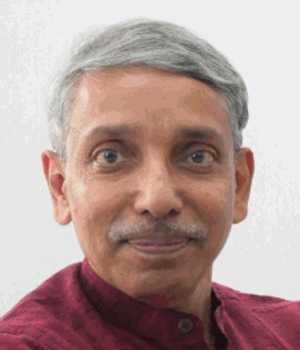In India, millions of students seek admission to higher educational institutions (HEIs) every year by clearing entrance tests such as the Joint Entrance Examination (JEE), National Eligibility-cum-Entrance Test (NEET) and Common University Entrance Test (CUET). To keep the admission process fair, transparent and objective, HEIs rely on entrance tests to admit students. Since entrance tests are competitive, they have faced criticism for perpetuating heightened stress and anxiety among students, influencing their cognitive function and mental well-being. Unrealistic expectations from students are shaping their real-life performance in negative ways. As the debate around such tests persists, teachers and family members must discuss with the students how to mitigate stress and enhance mental well-being while writing these entrance tests. There is much to be done in training students with useful ways of circumventing stress and anxiety during exam times, which could be pretty intimidating.
Resilience: Training students to manage and build resilience to overcome adversity can assist them in mitigating the negative effect on mental well-being. Students must learn coping mechanisms for stress management and effective navigation through stressful circumstances.
Fear of Failure: When faced with the apprehension of failure and the resulting missing out on admission prospects, it can be an important source of anxiety for students and is pernicious. The critical point is that students may compare themselves against their peers and speculate that they will fall short in their achievements, lowering self-esteem. Studies have revealed that there is an apparent link between fear of failure and heightened anxiety and its impact on mental well-being.
Study Plan: Students must pay attention to devising a personalized, structured study plan to enhance learning and retention. The starting point should be breaking down the syllabus into manageable parts, assigning distinct time to each topic, and setting pragmatic goals. Better academic performance is not simply an outcome of natural intellect but also a consequence of disciplined study habits.
Active Learning: Self-quizzing and summarization will improve students' understanding and enhance long-term retention. When you test yourself, it triggers retrieving information from memory, improving retention and understanding. Summarization is breaking down what you have learned into brief and coherent summaries, allowing students to recall key concepts, prioritize information, and articulate ideas in their own words.
Regular Revision: Regular spaced-out revisions enhance long-term memory consolidation and lower the possibility of forgetting crucial information. Cognitive psychologists dub this phenomenon the spacing effect. The late 19th-century psychologist Hermann Ebbinghaus discovered that learning and memory retention are more optimum when learners space study sessions over time rather than condense them into a single, intensive session.
Teaching Others: By increasing your understanding of the subject, you can better your chances of doing the entrance test well. A potential solution to enhance understanding is by teaching concepts to peers. When you teach others, you develop the ability to arrange your thoughts, distil doubts and handle likely questions.
Healthy Lifestyle: A healthy lifestyle positively affects our cognitive function. Routine exercise, balanced nutrition, and sufficient sleep contribute to improved concentration and memory–elements needed for all-around academic performance. Regular physical exercise produces neurotransmitters such as dopamine and serotonin, which regulate mood and cognitive function. Commitment to physical activity can contribute to one's mental resilience and focus. Our lifestyle choices decide our cognitive health, fostering academic excellence.
Mindfulness: This cannot be easy. However, students must be encouraged to practice deep breathing, meditation and yoga to minimize exam-related stress. Remaining present and setting realistic, measurable goals foster resilience and diminish anxiety. Doing so enables a sense of positive mindset and intrinsic motivation.
Social Support: A robust social support system has the potential to act as a buffer against students becoming susceptible to stress. A supportive environment where the student does not hesitate to seek guidance from mentors and is open to sharing concerns with friends and family members can aid the student's emotional well-being. A student can develop mental resilience in intense competition with unwavering family support and constant encourage-ment. Fostering and maintaining a solid social support system cannot be undervalued.
Students must embrace a multifaceted approach while attempting the entrance tests. By blending effective preparation strategies and stress management practices and cultivating a positive attitude, students can acquire the potential to write entrance tests with excellent morale and resilience, eventually enhancing their prospects of success.
Finally, a legendary basketball player, Michael Jordan, once said, “I've missed more than 9,000 shots in my career. I've lost almost 300 games. Twenty-six times, I've been trusted to take the game-winning shot and missed. I've failed over and over and over again in my life. And that is why I succeed.” Instead of getting caught up in the maelstrom of entrance tests, students must recognize that consistent headways in their learning endeavours, even amidst let-downs, can play a pivotal role in reaching the destinations they have set for themselves.
Additional information
Notes on contributors

Mamidala Jagadesh Kumar
Mamidala Jagadesh Kumar is a Professor of Electrical Engineering at the Indian Institute of Technology, New Delhi, India. He is the Chairman of University Grants Commission (UGC), New Delhi. He was the 12th Vice-Chancellor of Jawaharlal Nehru University, New Delhi (Jan 2016 - Feb 2022). He is the President of General Council, National Assessment and Accreditation Council (NAAC). He is also on the Board of Indian National Space Promotion and Authorization Center (IN-SPACe) established by Government of India. He was an Editor of IEEE Transactions on Electron Devices from 2006 to 2015. He is an Editor of IEEE Journal of the Electron Devices Society. He has widely published in the area of Micro/Nanoelectronics and is known for his excellence in teaching. Email: [email protected]
